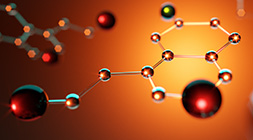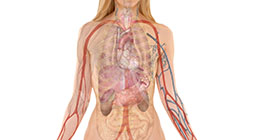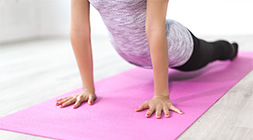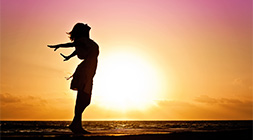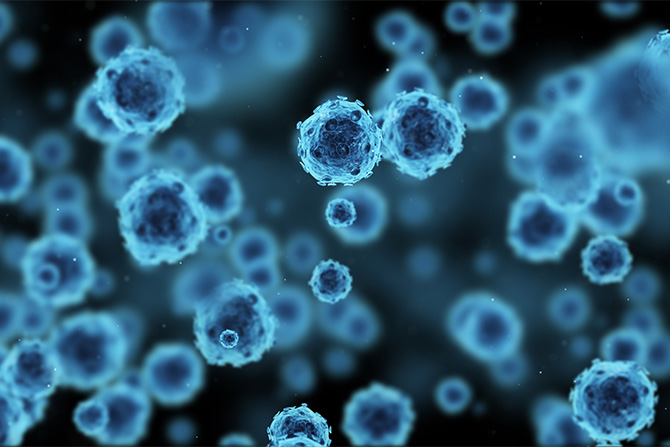
Overview
Symptoms
Causes
Prescription
Health Tips
There are two main types of herpes virus that cause skin blisters—herpes simplex and herpes zoster—but there are many types of herpes viruses, including Epstein-Barr (EBV), cytomegalovirus and herpes virus 8, which is thought to cause Kaposi’s sarcoma in people living with AIDS. Herpes viruses cause an inflammation of the sensory nerves that cause a wide range of illnesses. The virus remains inactive in the body or suppressed by the immune system and when the immune system falters, the virus becomes active.
Herpes simplex 1 (HSV-1), also known as oral herpes, is very common and extremely contagious. The infection is usually contracted during childhood and is lifelong. HSV-1 produces recurring cold sores or fever blisters on the lips and skin. It is possible to pass oral herpes to the genital area through oral sex. While annoying or embarrassing because of its prominent location, it is not usually harmful, unless the infection affects the eyes, where it can cause inflammation of the cornea. If the blisters are in the nose, there is a risk (although rare) of contracting herpes encephalitis. Care must be taken not to transfer it to other members of the family through sharing toothbrushes, linens, or kissing for example. It is estimated that around 67 percent of the worldwide population under age 50 are infected with HSV-1, however most infections are asymptomatic.
Herpes simplex 2 (HSV-2), or genital herpes, is transmitted sexually and can turn into a very serious condition. It can take anywhere from two days to a week for the sores to appear after initial contact, and the area is highly contagious until it has healed. HSV-II is more common in women than men. Some people with the infection may never know it (although they can pass it on), while others experience regular outbreaks of the blisters in their genital area. In serious cases, there is inflammation of the liver, which can lead to fever, stillbirths, or brain damage. Caesarian sections are recommended for infected mothers-to-be so as not to pass the virus to their babies as they exit the birth canal. Babies exposed to the herpes virus may suffer blindness, brain damage, or death. Recurrences usually reduce in severity and frequency over time.
The other herpes viruses are associated with many health conditions; some are serious. Herpes viruses should always be investigated by a physician as they have been known to cause death in susceptible individuals. Cytomegalovirus can induce problems with the heart and the eyes. Epstein-Barr virus is responsible for mononucleosis and chronic fatigue syndrome. Herpes types 6 and 7 are being investigated for their role in autoimmune disorders. Herpes 8 is akin to Epstein-Barr and is suspected as a contributor to conditions such as chronic fatigue syndrome, Kaposi’s sarcoma, and bone cancer.
Symptoms
HSV-I (oral herpes) symptoms:
- Blisters which eventually erupt and crust over
- Tingling or burning sensation on the lips (or genital area)
- Tingling which turns into a painful swelling that develops into a cluster of multiple fluid-filled blisters
HSV-II (genital herpes) symptoms:
- Both men and women may have a watery discharge or find urination painful
- For men, blisters may appear on the penis, scrotum, rectum and groin; foreskin may swell
- For women, blisters can appear in the vagina, around the clitoris, rectum, and cervix
- Initial outbreak may be accompanied by a low fever, muscle aches, or swollen lymph nodes
Causes
The herpes simplex virus lies dormant in the nerve cells for long periods. The frequency and intensity of eruptions can usually be linked to periods of high stress, poor nutritional habits, exposure to the sun, allergens, or toxins, and anxiety. Quite often, an outbreak of herpes follows a minor infection or cold. High cortisol (stress hormone) levels promote herpes outbreaks. Food allergies or consuming foods or supplements high in arginine can provoke the virus to flare up by suppressing the activity of lysine, an amino acid successful in preventing herpes. Other conditions that may bring on an attack are spinal cord injuries, drug reactions, and an immune system suppressed by illness.
Prescription for Health
| Nutrient | Action | Dose |
|---|---|---|
| Moducare®
(Beta-Sitosterol, Beta-Sitosterolin-Beta-D-Glucoside) |
20 mg / 0.2 mg
Adults and children 17 years and older take 1 capsules three times daily OR 2 capsules upon rising and 1 capsule before bed. |
Helps to support a healthy immune system balance |
| Vitamin C | During an outbreak take 1000 mg of vitamin C every waking hour until sores are gone. | Enhances immune function and prevents virus from replicating |
| Vitamin D3 | During an outbreak take 10 000 IU. For prevention take 2 000 to 5 000 daily | Combats outbreaks. Those with higher Vit D3 levels had more antibodies to herpes simplex HSV 2. |
| Coenzyme fully reacted B-complex and vitamin B12 | B-complex during outbreak, and an additional B12 supplement of 500 mcg of every waking hour or 1000 mcg B12 injection three times per week until sores are gone. Then take 500 mcg daily for maintenance, which can typically be found in a B-complex.Look for a minimum of the following per daily dose of B complex:
B1 – 100mg B2 – 7.5 mg Niacin – 353 mg B5 – 300 mg B6 – 100 mg B12 – 1000 mcg Folate – 1000 mcg |
Protects against the effects of stress. B12 helps with postherpetic neuralgia and shrinking of blisters. B12 injections have been shown to shorten the duration of shingles. |
| Bioflavonoids | 500 mg every waking hour until sores are gone, then 500 mg daily thereafter | Works with vitamin C, helps suppress HSV replication |
| Lysine | 2000 mg daily until sores are gone, then 500 mg thereafter for prevention | Shrinks blisters, reduces recurrence,by keeping arginine in balance |
| Zinc citrate | 30 mg daily until sores are gone, then take containing 15 mg of zinc | Prevents infection and boosts immunity |
| CoQ10 | 200 mg daily until sores are gone, then take Multimune containing 30 mg of CoQ10 | Helps immune system fight viruses |
| Homeopathic Rhus Tox 12C | Three pellets three times daily until sores are gone | Stops virus and enhances immune function |
Health Tips to Enhance Healing
- Apply a topical tea tree oil ointment (not diluted oil), lemon balm, licorice root gel, or lysine cream to the blisters as needed.
- At the initial signs of an outbreak, apply ice to the area every 10 minutes for up to an hour. Ice can prevent the virus from traveling from the nerve to the skin.
- Avoid foods that contain high amounts of arginine, including peanuts, chocolate, raisins, carob, gelatin, cereal grains, and other arginine-rich foods or nutritional supplements. Arginine competes with lysine for absorption and when lysine is low, herpes outbreaks increase.
- Avoid the sun.
- Herbs that are particularly helpful for fighting the herpes virus are cayenne and goldenseal.
- In cases of genital herpes, wear cotton underwear and be sure to keep the area clean and dry.
- In severe cases of type 1 and type 2, injections of adenosine-5-phosphate have been successfully used to control outbreaks.
- Reduce stress levels. Get plenty of sleep and rest, practice stress-reduction techniques.
- Try not to touch the infected area, be sure to wash hands immediately if coming into contact with affected area so as not to accidentally infect eyes, or pass the virus on to others. If an eye becomes infected, seek treatment immediately.
- Women with genital herpes are often deficient in iron. Have iron levels checked by a doctor.





